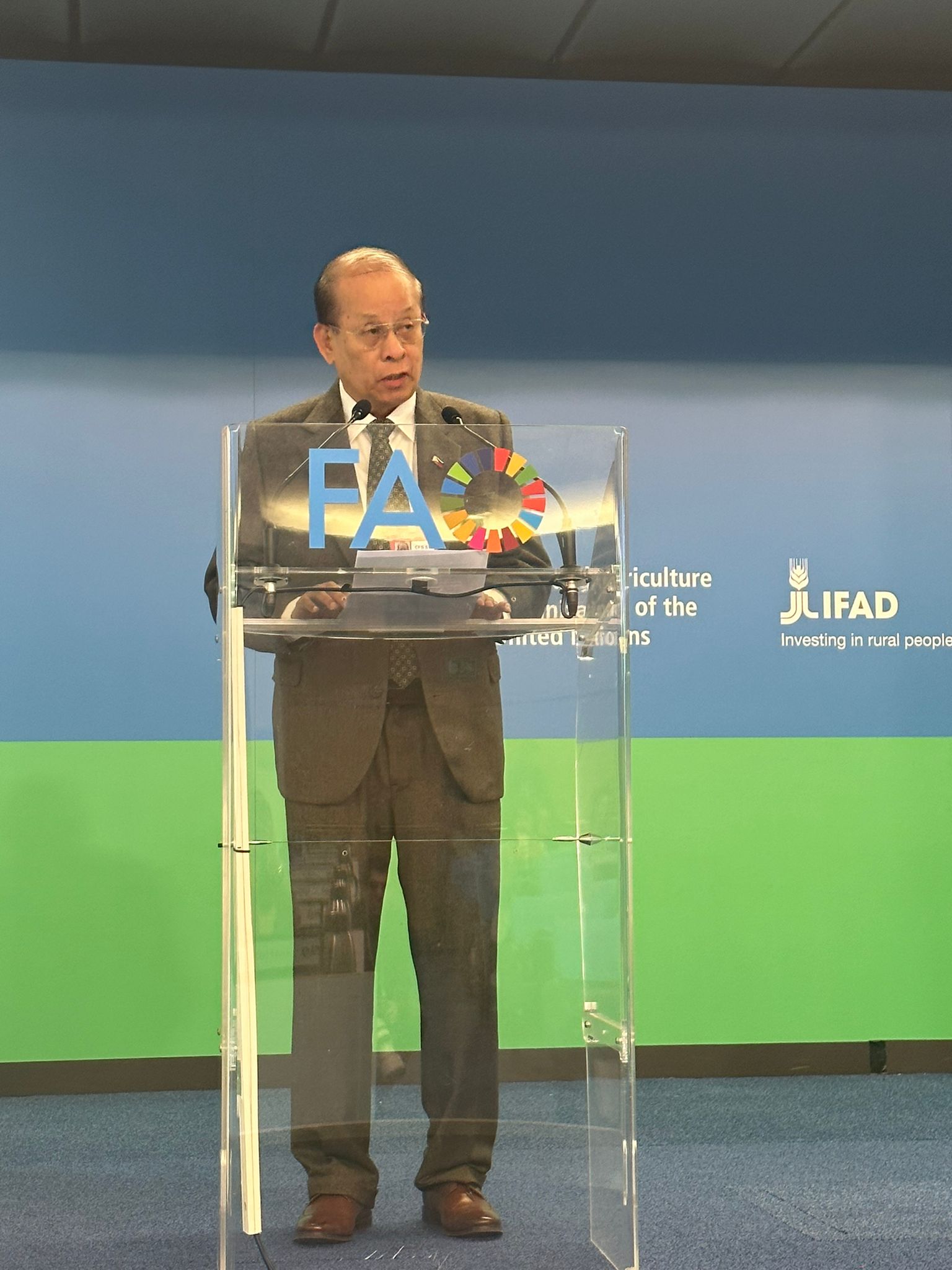
The Department of Agriculture (DA) Senior Undersecretary Domingo F. Panganiban served as one of the invited panelists during the 51st Plenary Session of the Committee on World Food Security (CFS) to share the Philippines’ efforts relative to CFS Policy Recommendations on Price Volatility and Social Protection for Food Security and Nutrition.
In his statement, the Senior Undersecretary highlighted the Enhanced Partnership Against Poverty and Hunger Program (EPAHP) has been instituted by the Philippines since December 2019.
He explained that this government initiative expanded involvement to multiple agencies and partners, in addition to the Department of Social Welfare and Development (DSWD), the Department of Agriculture (DA), and the Department of Agrarian Reform (DAR).
A timely program that also addressed the COVID-19 pandemic’s impacts on incomes, food security, and nutrition while strengthening resilience, Senior Undersecretary Panganiban discussed that the EPAHP, which the DSWD is leading, is a massive national endeavor that involves vigorous public investments in infrastructure, job creation, and emergency assistance services, and is premised on a combination of both short and long-term initiatives designed to deliver social welfare benefits to millions of underprivileged Filipino families in cities, towns, and the Countryside.
“The Philippines notes that this program aligns with our obligations under the United Nations Sustainable Development Goals and several CFS policy recommendations on Social Protection for Food Security and Nutrition,” the Senior Undersecretary added.
Key strategic measures that the Philippines has been undertaking to address hunger and food security were emphasized. These measures include providing institutional feeding programs, credit assistance to support food production, processing, and marketing, capacity building, skills training, and productivity improvement for community-based and rural-based organizations. The country has also been linking community-based organizations to markets and fully implementing the national population program.
Senior Undersecretary Panganiban also highlighted the contributions of the DA to increasing sustainable domestic food production, encouraging rural enterprise, and widening the access to adequate nutrition and social welfare services of the marginalized.
These tangible contributions include but are not limited to 1) loans to finance enterprises of rice farmers; 2) provision of high-quality fingerlings, broodstocks, fertilizers, high-yielding corn seeds, mechanized farming units, and motorized vessels and handline boats; and 3) construction, maintenance, and repair of irrigation networks and farm to market roads.
“Philippine President Ferdinand Marcos, Jr. took office in June 2022 on a commitment to create a society in which no parent has to worry about hunger in the family due to a lack of opportunities to earn an income,” the Senior Undersecretary added.
With its inclusive and multistakeholder structure, the CFS serves as a forum for a range of perspectives to collaborate and create workable solutions to address the issues of food security and nutrition that result from several overlapping crises.
The monitoring event focused on two sets of policy recommendations endorsed during the 37th and 39th Sessions of CFS – the first one being about Price Volatility and Food Security, and the second one about Social Protection for Food Security and Nutrition, to assess their implementation progress.
Other invited High-Level panelists to discuss social protection efforts for food security and nutrition were the Minister of Community and Development and Social Services of Zambia, the Vice Minister of Brazil’s Ministry of Development and Social Assistance, Family and Fight Against Hunger, and Representatives of the Private Sector Mechanism, the Civil Society and Indigenous Peoples’ Mechanism and the International Fund for Agricultural Development. ###













